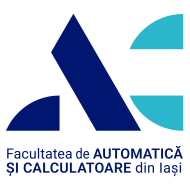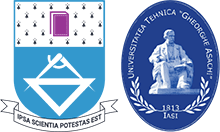Mission
The mission of the Faculty of Automatic Control and Computer Engineering is to train high-performance and competent specialists in the fields of Computer and Information Technology and Systems Engineering. Our faculty provides students with an education that combines rigorous academic study with stimulating creative activities, preparing engineers with skills in computer architecture, microprocessor-based systems, programming languages, software application systems, artificial intelligence and expert systems, control systems engineering, advanced drive systems, robots and automated manufacturing systems and industrial automation.
Quality
The study programs offered by our faculty meet the standards imposed by the Romanian Agency for Quality Assurance in Higher Education. The high-standard courses enable the equivalence of degrees awarded at the most reputable universities. Our graduates are employed by major IT companies or are enrolled in doctoral programs in universities and research institutes worldwide.
Study Programs
Faculty of Automatic Control and Computer Engineering has adopted the Bologna process, thus offering bachelor, master, and doctoral study programs compatible with the European system of transferable credits:
- Cycle I: 4 years, prepares engineers with bachelor’s degrees;
Cycle II, between 1.5 and 2 years, prepares engineers with a master’s degree;
Cycle III: 3 years, prepares specialists with the degree of Doctor of Engineering within the Doctoral School.
Additionally, the faculty organises postgraduate studies.
Departments
The faculty of Automatic Control and Computer Engineering contains two departments:
The Faculty is led by the Faculty Council, which consists of 18 teachers and 6 student representatives.
International research and collaboration
The research activity is accomplished within the three CNCSIS-accredited research centres and the research laboratories. The scientific research is focused on national, European, and global programs and projects. The faculty has numerous collaborations with European universities, with many of the bachelor, master, or doctoral students undertaking preparatory internships at those universities.


